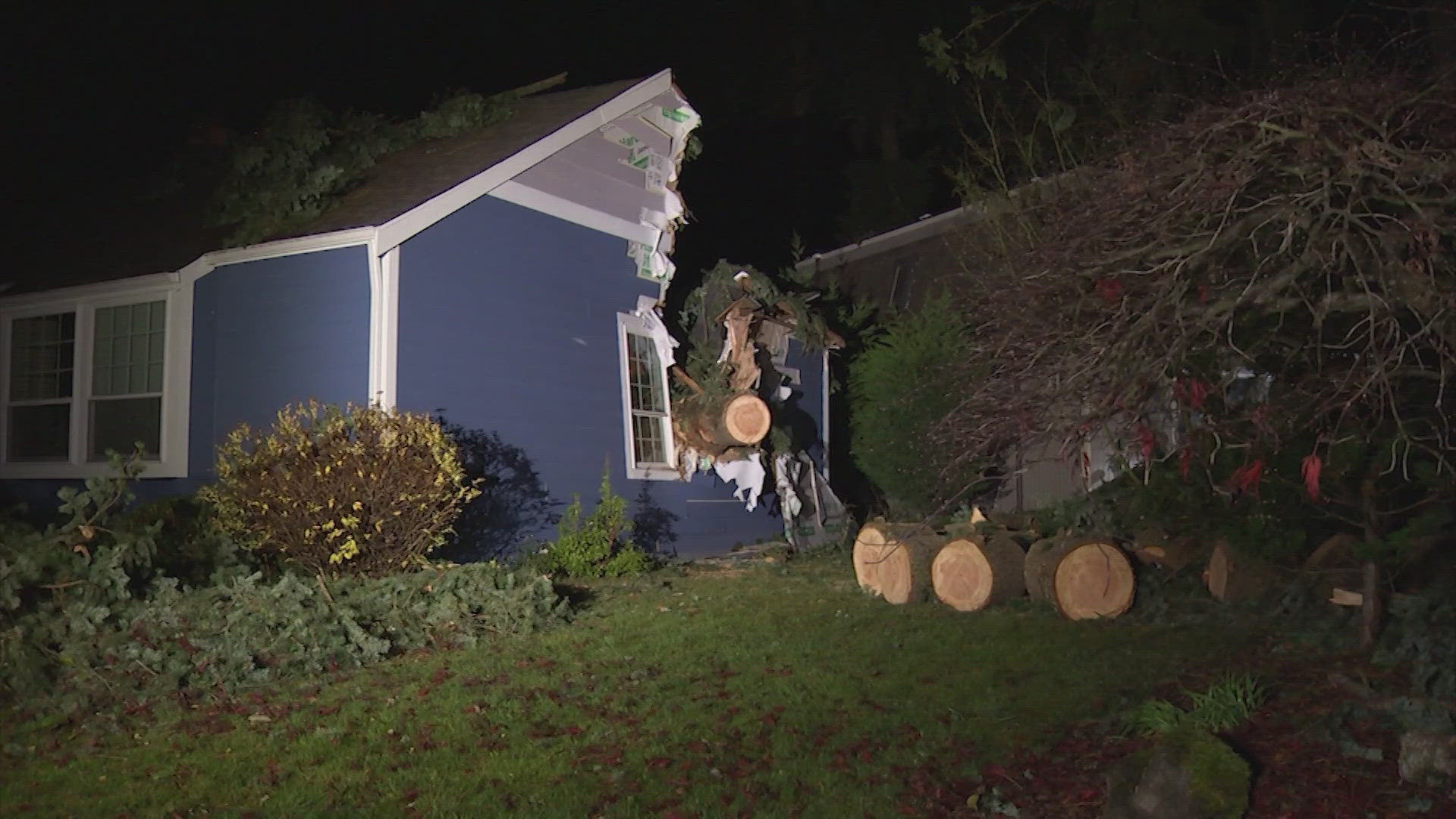HOH INDIAN RESERVATION, Wash. - Flooding used to be a problem every five or 10 years for the tiny Hoh Indian Reservation. These days it's an annual event.
Related Content
Sandbags permanently surround the tribal center and many homes because the nearby Hoh River has meandered dangerously closer over time. Meanwhile, most of the 443-acre reservation is less than 40 feet above sea level, and could be devastated by a major tsunami.
So the Hoh Indians are trying to move to higher ground.
"We're literally moving the village," said Alexis Barry, executive director of the tribe in remote northwestern Washington. "We've known for a long time this has had to happen."
There's just one catch: The tribe needs 37 acres of the Olympic National Park to connect their existing land with property they've acquired from private owners and the state.
The river and its salmon have always been focal to its history and identity, but the tribe weren't always confined to this one-square mile plot at the mouth of the river.
Tribal members historically used the entire river to fish, hunt and forage. But the Hoh and other tribes ceded their land to the government under the Quinault Treaty of 1856.
In 1893, the Hoh were moved to this reservation on land hemmed in by the river, the ocean and what is now the rain-soaked Olympic National Park.
Since then, the Hoh River, which descends 7,000 feet as it winds 50 miles from Mount Olympus west to the Pacific Ocean - has shifted a half-mile south, cutting into land near the tribal center.
"The Hoh decides where it's going to go," Barry said.
With 90 percent of the reservation in a flood zone, there isn't enough land on the reservation to move all the tribal buildings and homes out of harm's way. The tribe has sought to relocate its buildings for two decades, but only recently made progress.
"You can't be a sovereign land without land," said Marie Riebe, the tribal secretary.
Standing at the shore where the ocean crashes into the mouth of the river, Riebe pointed to a patch of overgrown blackberry. "There was a house there, and another home there," she said.
No one lives there now. The ocean washed several homes away, and the ones left standing were abandoned long ago.
Amy Benally, who lived in one of the homes lost to the river, remembers the water flowing to the front door and the night a Coast Guard helicopter circled above warning them of a tsunami threat.
Gambling revenues in recent years allowed the tribe to buy 265 acres of private land from nearby tree farms. The tribe doesn't have a casino, but leases its gambling rights to other tribes.
It's also increased its political clout and enlisted several state lawmakers to help it acquire 160 acres of state trust lands in June.
"It's the right thing to do," said state Democratic House Majority Leader Lynn Kessler, whose district includes the reservation. "The land was available and no reasonable person would deny them the ability to get above the flood zone."
Carving out the last 37 acres from the Olympic National park may be a tougher proposition.
The Hoh Tribe has been working quietly to line up support.
Democrat U.S. Rep. Norm Dicks plans to reintroduce a bill in January to transfer land from the park and put it in trust for the Hoh tribe, his spokesman George Behan said.
Barb Maynes, a park spokeswoman, said the park has been working with the tribe at Dicks' request to make sure both tribal and park interests are included.
Park conservationists have been largely supportive.
"If there's no other alternative, you need to protect human life," said Sean Smith, Northwest regional director for the National Parks Conservation Association.
The tribe wouldn't be able to develop on the land and must maintain a natural wildlife corridor on it. Hunting, logging or gaming would not be allowed.
While conservationists are reluctant to see lands withdrawn from the park without additional lands added, it's a reasonable request, said Tim McNulty, a trustee of Olympic Park Associates.
The 133 residents who live on the reservation are used to stepping over sandbags and keeping boots at the ready. The nearby park's lush rainforest gets about 12 feet of rain a year.
When it rains, the river crests, the creeks overflow and water courses down the main road. During one recent storm, the National Guard had to truck in clean drinking water and food to residents.
Sandbagging is second nature. On a recent day, the tribe with the help of state prison labor bagged 6,000 pounds of sand - just in case.
A berm, four sandbags high, surrounds Eric Penn's house. Some of the sandbags are so old, vegetation grows from it.
"It's worse than it used to be," he said.
Benally said recent progress in acquiring land has infused new energy into the tribe. It is opening a new clinic, daycare center and tribal center on safe ground at the edge of the reservation. It has plans to build new homes in the newly acquired land.
"We have a lot of respect for the river," she said. But "now we have the new land and can relocate."

